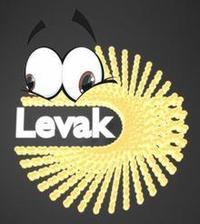Several days ago, I searched for Linux implementations of FlashFX / Datalight Reliance:
* several "grep" in the Kconfig files came up empty, which is never a good sign (most filesystems are in-tree, ntfs-3g being the main exception);
* a generic search engine request turns up results like
http://www.datalight.com/resources/data ... file-linux (manufacturer's site), which showcases newer versions than we have on the Nspire. On the "Evaluations" page ("Download - Try - Buy" image+link at the top right), one needs to create an account to access the search (AFAICT), but anyway, Linux isn't even mentioned as an OS choice... and the code is clearly accessible only for a fee, probably under a proprietary license (unless it's available as a Linux kernel patch - it's basically impossible to make a meaningful kernel driver, even as a module, without the license being GPL).
Therefore, the prospect of full (R+W) support for the filesystem of Phoenix looks bleak, unless someone feels like doing lots of reverse-engineering and producing either a driver for Linux, either a kernel-level driver or a user-level (FUSE) driver. User-level drivers are said to be easier to develop, and the driver could largely be used on other *nix flavors, as the Linux-originated FUSE was ported to several other *nix OS. Read-only support would be a good first step.
For efficiency reasons, it seems that Datalight provides different versions of its filesystem driver, depending on the Flash memory type. If the storage format happens to depend on the memory type, the prospect of a generic Linux driver for FlashFX / Datalight Reliance is even further away.
Given that it took more than two years and a half after the initial publication of arbitrary code execution for a Linux port to be made on the Nspire platform (on most platforms that people are interested in, it's mere weeks...), the likelihood that the task of making a driver for FlashFX / Reliance will be undertaken is pretty low; but I'd love to be proved wrong

On the Clickpad, we wouldn't have to worry much about compatibility with a proprietary filesystem, as we can modify the contents of the boot1 and change the calculator's behaviour in arbitrary ways, including using a different filesystem and different communication protocols.








